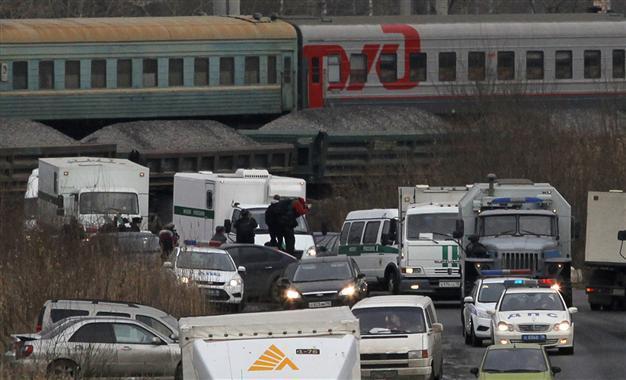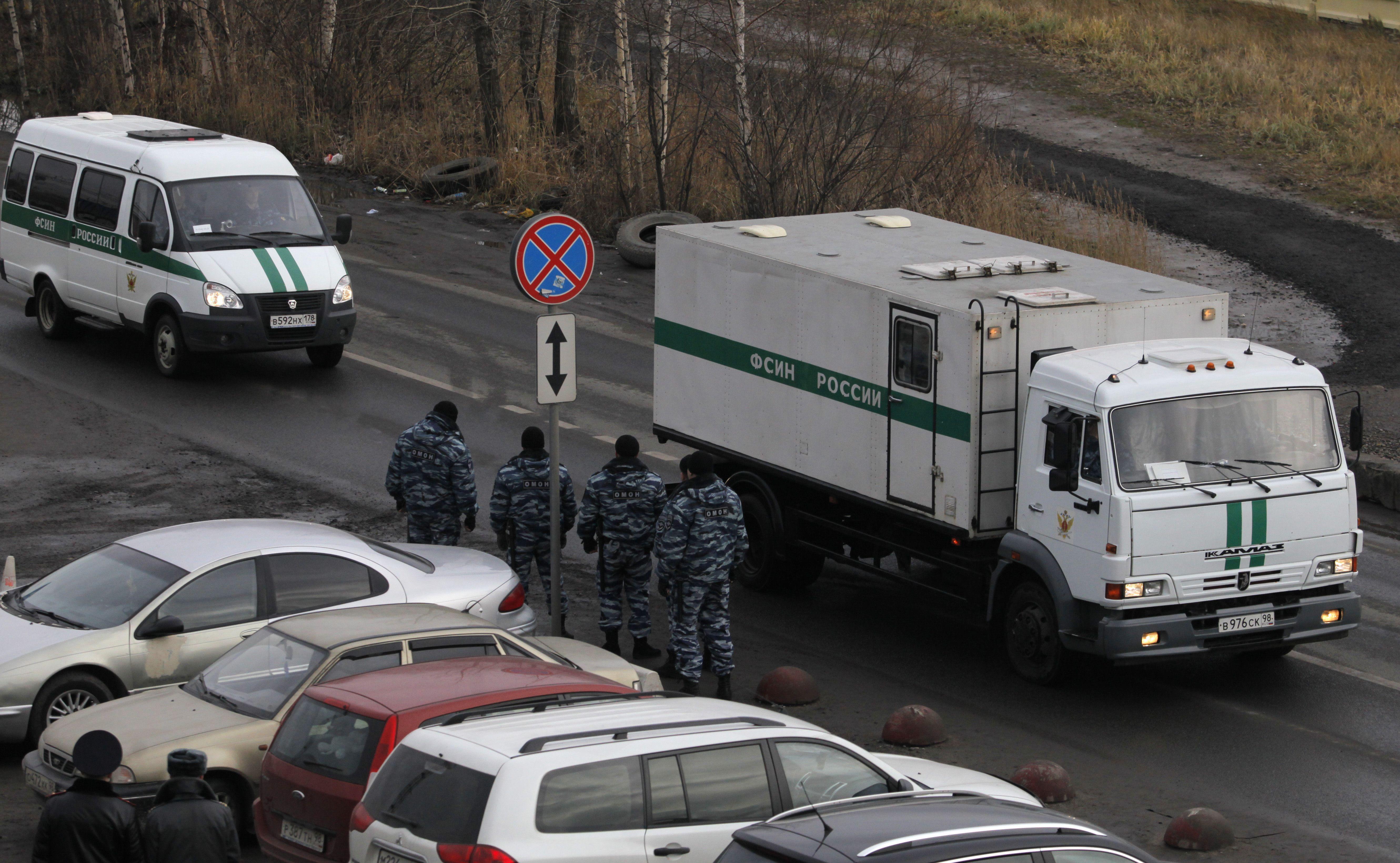Russia moves detained Greenpeace activists to St Petersburg
SAINT PETERSBURG - Agence France-Presse

Russian media, at left, cover a convoy of police vehicles believed to be transporting Greenpeace activists to a prison in St. Petersburg, Russia, Tuesday, Nov. 12, 2013. AP photos
Russia on Tuesday transferred by train 30 detained crew members of a Greenpeace protest ship, moving them from the Arctic Circle city of Murmansk where they had been held since late September to Saint Petersburg.The regular Murmansk-Saint Petersburg passenger train, which the group had said was carrying its activists, drew into Ladozhsky train station in Saint Petersburg, an AFP photographer saw.
One of the carriages, likely containing the detainees, was uncoupled from the train and taken to a distant part of the station where journalists were not allowed to go. A column of prison service trucks was seen leaving the station shortly afterwards.
Russia's Investigative Committee said Monday it was transferring the so-called "Arctic 30" to the city, where the winter is usually less severe than in Murmansk in Russia's Far North.
The Russian prison service confirmed the transfer, without giving any details of their schedule or the prisons where the activists from 19 different countries will be placed.
It is not known where the prisoners, who include two freelance journalists, will be held in Saint Petersburg, Greenpeace said in a statement.
"It is not yet certain which SIZO (detention centre) in Saint Petersburg they are being taken to or whether the new facility will represent an improvement on conditions compared with their detention in Murmansk." The activists could be "spread out over different locations across Saint Petersburg," it added.
 On arrival, the prisoners will face an initial quarantine period when they will be unable to meet lawyers.
On arrival, the prisoners will face an initial quarantine period when they will be unable to meet lawyers.One possible detention facility could be the notorious Kresty prison on the banks of the Neva river which housed political prisoners both in tsarist and Soviet times.
Many countries have consulates in Saint Petersburg, Russia's second largest city, which could make it easier for diplomats to visit the prisoners. The city also has direct flights abroad.
The train journey from Murmansk to Saint Petersburg covers around 1,500 kilometres (950 miles) and takes 27 hours.
Journalists crowded the station platform as the train arrived, held back by burly riot police who prevented them from approaching the green-painted carriage at the tail of the train.
The crew members of Greenpeace's Arctic Sunrise ship have been held in pre-trial detention after several of them staged a protest against energy prospecting in the Arctic by scaling a state-owned oil platform.
Russian authorities boarded the ship on September 19 and towed it to Murmansk. Greenpeace says the authorities had no right to detain the Dutch-flagged ship in international waters.
Russia's Investigative Committee in October said it was changing the initial piracy charges against the crew members to hooliganism, an offence that carries a maximum penalty of seven years in prison.
But Greenpeace says the piracy charges were never formally lifted, meaning the activists are currently facing charges of both piracy and hooliganism. All have been detained until November 24 and could face court hearings next week to extend their detention.
On Tuesday the presidential human rights council, an advisory body, published an open letter to the head of the Investigative Committee, which probes serious crime, asking for the Greenpeace crew members to be released after paying bail or signing undertakings not to travel.
















